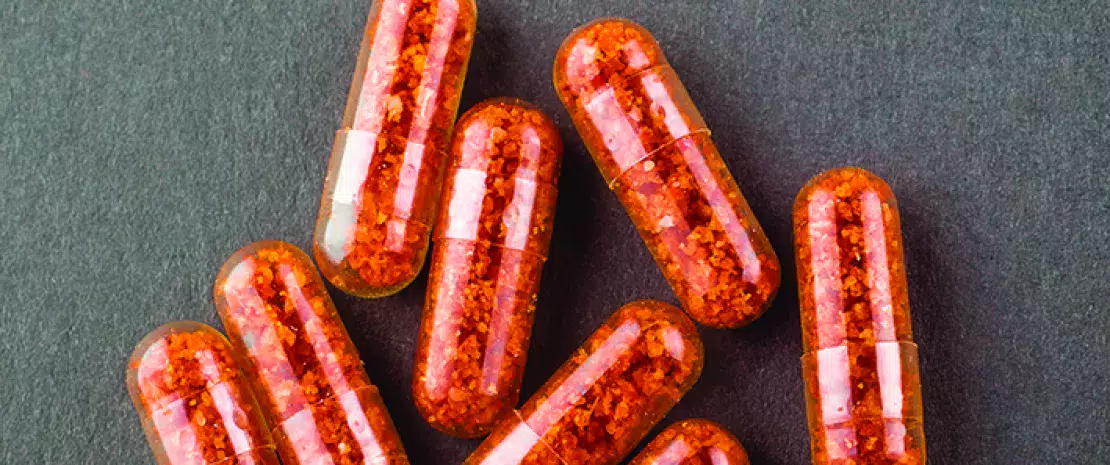Gut microbiota # 14
By Pr. Markku Voutilainen
Turku University Faculty of Medicine; Turku University Hospital, Department of Gastroenterology, Turku, Finland
Lay public section
Find here your dedicated section
Sources
This article is based on scientific information
Sections

About this article
Author
FECAL MICROBIOTA TRANSPLANTATION AND FIBER SUPPLEMENTATION TO CONTROL METABOLIC SYNDROME IN OBESE PERSONS
Obesity and metabolic syndrome (MS) comprise one of the greatest health epidemics of the 21st century. MS is associated with increased risk of cardiovascular diseases and all-cause mortality. To establish FMT as a pragmatic therapy for obesity and metabolic syndrome, novel strategies using non-invasive delivery methods in patients suffering metabolic dysfunction are needed. The authors tested oral FMT and dietary fibres supplementation to improve insulin sensitivity. In this double-blind randomized phase II trial, 70 severely obese patients with MS were randomized in four groups. The 1st and 2nd groups received single-dose oral encapsulated FMT followed by high-fermentable (HF) or low-fermentable fiber (LF) supplement for 6 weeks, respectively. The 3rd and 4th group received placebo and HF or LF supplementation. The primary outcome was the evaluation of changes in insulin sensitivity between baseline and after 6 weeks of treatment using the homeostatic model assessment (HOMA2-IR/IS). No serious adverse effects were reported during the intervention. After 6 weeks, insulin sensitivity improved only in the FMTLF group insulin levels also improved, but fasting glycemia, glycated haemoglobin and anthropometric values did not change. FMT resulted increased gut microbial richness, the change was greatest in the FMT-LF group. Phascolarcobacterium, Bacteroides stercoris and B. caccae were associated with HOMA2-IR and insulin sensitivity and may be used for future treatment.
GUT MICROBIOTA, EPITHELIAL DEFENCE AND NEONATAL BACTERIAL MENINGITIS
Group B streptococcus (GBS) is a leading cause of meningitis, pneumonia and sepsis in infants, and 68% of GBS neonatal meningitis are late-onset infections (developing from 7 days to 3 months after birth). This infection may result from intestinal GBS colonization transmitted from mother to child during pre- or post-delivery. The authors examined in mice the reasons of neonatal susceptibility to GBS and showed that it was associated with gut microbiota dependent/independent factors as well as age. Mature gut microbiota resists GBS colonization, strengthens gut barrier function limiting GBS invasion and plays a central role in the maturation of immune system. In neonatal gut, age-dependent Wnt pathway activity in intestinal and choroid plexus epithelia favors GBS translocation due to lower cell-cell junctions polarization. Moreover, gut microbiota immaturity is associated with decreased resistance to GBS colonization and increased vascular-gut barrier permeability, which favors bacteremia. The authors suggest that maturing neonatal microbiota with probiotics and/or prebiotics may help in preventing neonatal bacterial meningitis. In conclusion, fluoroquinolone prophylaxis gives short-term protection against infections but does not increase the risk of cross-resistance to other antibiotics.
MICROBIOTA, STRESS AND SOCIAL BEHAVIOUR
The microbiota-gut-brain axis (MGBA) is a two-way communication system linking the gut microbiota and brain. MGBA modulates behavior such as sociability and anxiety in mice, however underlying mechanisms remains unknown. In this article, antibiotic-treated mice and germ-free mice showed decreased social activity associated with increased corticosterone level. This stress hormone is produced by the activation of the hypothalamus–pituitary–adrenal axis (HPA). Gut bacteria transplantation from SPF (Specific Pathogen-Free) mice donors corrected social activity and lowered corticosterone level. Glucocorticoid receptors in the hypothalamus were negative regulators of the HPA axis These receptors regulated corticosterone levels and social behaviors, both of these functions were regulated by gut microbiota. In antibiotic-treated mice, genetic ablation of glucocorticoid receptors or chemogenetic inactivation of neurons producing the corticotrophin-releasing hormone (CRH) induce social behaviour reversal. Activation of CRH and glucocorticoid receptor-expressing neurons induced social behavior alterations in mice having normal microbiota, indicating neural pathway regulating social behavior. Finally, neomycin-sensitive bacteria, e. g. Enterococcus faecalis, mediates social behavior. The present results suggest that specific bacteria prevent overactive stress reaction by attenuating corticosterone production mediated by HPA-axis. The detection of neural pathway mediating signals from the gut to the brain may enable procedures that modulate social behavioral disorders.
GUT MICROBIOTA AND BRAIN INFARCT
Clinical studies reported that circulating gut-microbiota derived metabolite trimethylamine- N-oxide (TMAO) are associated with stroke. However, the direct involvement of gut microbiota in cerebral vascular diseases (including stroke) is not known with certainty. Circulating TMAO is generated by microbial metabolism of TMA-containing precursors, including choline, which is commonly enriched in a Western diet. By using rodent models of stroke, the authors investigated whether gut microbiota in general or either TMAO or a functioning gut microbial cutC gene (choline utilisation [cut] c gene catalyzes choline-TMA transformation) can impact stroke severity. Germ-free mice were colonized with human gut microbiota from subjects with high or low serum TMAO levels followed by experimental stroke injury. The authors showed that stroke severity was transmissible, and TMAO levels correlated with stroke severity. Specific gut bacterial taxa positively correlate with high TMAO levels, brain infarct size through dietary choline. Gut microbial cutC gene increases host TMAO levels, cerebral infarct size, and functional deficits. In summary, gut microbiota with choline- TMAO pathway increases stroke severity and worsens functional outcome. Western diet (and diet rich in red meat) contains TMA precursors and have been associated with stroke risk. Dietary interventions in patients with high stroke risk merit further investigation. CutC activity is the key factor for stroke severity and TMAO pathway could be a potential target for the prevention or treatment of stroke.







